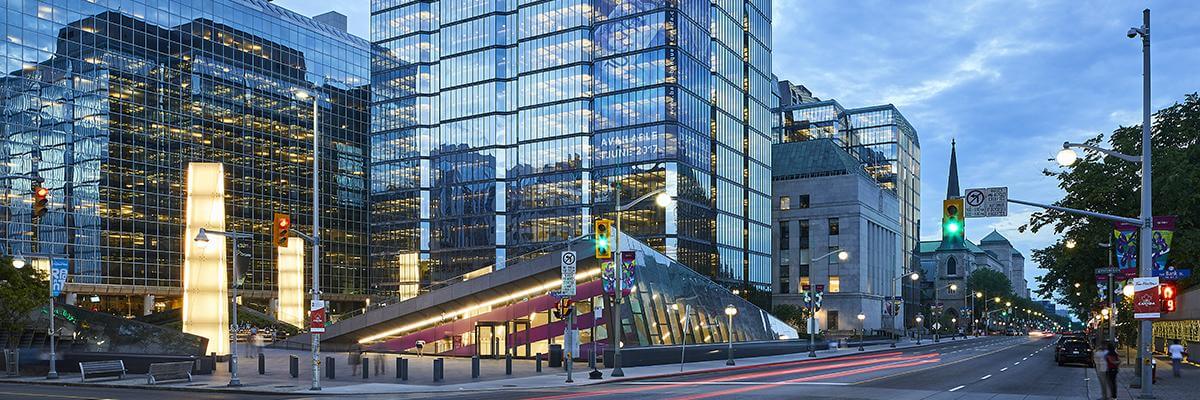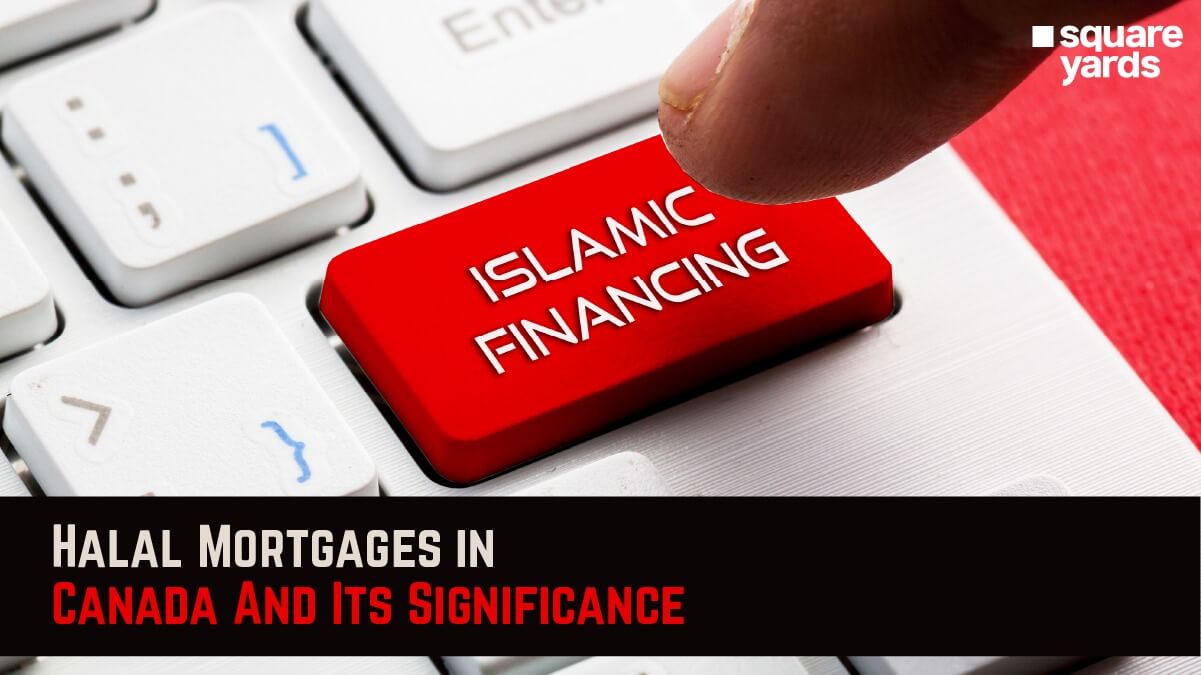In Canada, Islamic Financial Institutions pioneered halal mortgages to conform to Shariah, an Islamic legal code that forbids paying interest (riba). These halal mortgage in Canada are structured differently from traditional ones to minimise interest. Examples of these models are Ijara (lease-to-own), Murabaha (cost-plus financing), and Musharaka (diminishing partnership). Buyers either pay a fixed profit margin or gradually purchase the bank’s portion of the property instead of interest. The demand for Halal mortgages is rising in Canada due to the country’s growing Muslim population. As a result, several Islamic financial organisations and some conventional banks are now providing these Shariah-compliant mortgages, ensuring they comply with Canadian legal standards.
Halal Mortgage in Canada Explained in Simple Words

A halal mortgage in Canada is a kind of house financing that adheres to Shariah, an Islamic law that forbids the payment or receipt of interest (riba). This scheme also goes by several names, such as Muslim mortgage and Islamic home finance in Canada. Halal mortgages assist house purchases while upholding Islamic values by using alternative structures, including Ijara (lease-to-own), Murabaha (cost-plus financing), and Musharaka (diminishing partnership), in place of conventional interest-based loans.
-
- Under a Murabaha mortgage, the buyer is the financial institution that purchases the property and then sells it to them at a higher price that is predetermined and includes a profit margin. Over a predetermined period, the buyer repays this sum in instalments.
- Under an Ijara agreement, the buyer and the bank jointly buy the property, with the lease payments going toward the ultimate purchase of the land.
- In a Musharaka transaction, the buyer and the financial institution jointly own the property, with the buyer eventually purchasing the institution’s portion.
Notable Attributes of a Halal Mortgage in Canada
The Muslim mortgage in Canada is popular for its distinctive features. The most crucial ones that set it apart from regular mortgage schemes are as follows.
-
- There is no need to pay Riba: Islam categorically bans the imposition of Interest rates on mortgages. A Halal mortgage in Canada makes money without charging interest.
- Alternative Financing Model: The business model of a Halal mortgage in Canada involves three ways. The bank can lease the property to the buyer (Ijara), purchase it and then sell it back to the buyer at a profit (Murabaha) or form a partnership in which the buyer and the bank share ownership (Musharaka).
Bank of Canada’s Supervisory Authority

To maintain the stability and effectiveness of the Canadian financial system, the Bank of Canada is an essential regulatory body. It is responsible for creating and carrying out monetary policy to ensure low and steady inflation, which is critical for long-term economic expansion.
The Bank of Canada does not directly regulate specific financial products like Halal mortgages. Instead, its role involves setting monetary policy, promoting financial stability, and overseeing the broader financial system. Like other financial products, a Halal mortgage in Canada falls under the jurisdiction of provincial regulators and the Office of the Superintendent of Financial Institutions (OSFI). These bodies ensure that financial institutions offering Halal mortgages comply with Canadian laws and regulations, including consumer protection and financial stability standards.
Importance of Islamic Home Finance in Canada for Muslim Homebuyers
Halal mortgage in Canada are very important to Muslim homebuyers because they give them a way of purchasing a house compliant with Islamic law. Islamic law prohibits traditional mortgages since they require paying interest or riba. Halal mortgages enable Muslim homeowners to finance their properties without sacrificing their religious convictions. These Shariah-compliant solutions make homeownership accessible and morally acceptable within the confines of Islamic law, enabling Muslim buyers to engage in the real estate market while upholding their religious beliefs.
Key Benefits of Muslim Mortgage Canada:
Here are some primary benefits Muslim homebuyers get from a Canadian Halal Mortgage.
-
- Shariah Compliance: Halal mortgages are designed to prevent interest payments (riba), enabling Muslim real estate buyers to make purchases compliant with Islamic law.
- Ethical Financing: For buyers who prioritise upholding their moral and religious principles, these mortgages provide a conscience-insuring substitute for traditional loans.
- Access to Homeownership: Through halal mortgages, Muslim purchasers can now participate in the real estate market and become homeowners without violating their religious beliefs.
- Flexible Structures: Buyers can select a financing structure that best suits their needs and financial position from options such as Murabaha, Ijara, and Musharaka.
- Community and Cultural Alignment: Halal mortgages frequently address the unique requirements of the Muslim community, promoting a feeling of belonging and assistance inside the Canadian banking system.
Various Types of Sharia-Compliant Mortgages in Canada

Many kinds of Halal mortgage In Canada accommodate Muslim consumers looking for financing choices that adhere to Shariah. These alternatives to traditional interest-based mortgages include:
Murabaha
Under a Murabaha mortgage, the buyer buys the property from the financial institution, which then sells it to them at a higher price agreed upon and includes a profit margin. Instalments over a predetermined period are how the buyer pays this payment. The profit margin is predetermined at the contract’s start, and no interest exists. The profit margin is specified upfront and is transparent throughout the transaction, guaranteeing that Islamic rules are followed.
Ijara
The financial institution purchases and leases the property to the buyer under the Ijara model. In addition to rent, the lease payments cover a portion of the future cost of the property. Over time, the buyer progressively becomes the owner of the property. After the lease period, ownership is transferred to the buyer, making the transaction progressive and interest-free.
Musharaka
A Musharaka mortgage involves the financial institution and the buyer purchasing the property together. The buyer then makes payments over time to progressively acquire the institution’s portion. The financial institution’s property ownership diminishes as the buyer’s equity rises, ultimately leaving the buyer as the sole owner. This partnership method is consistent with Islamic finance principles as it permits shared risk and a gradual transfer of ownership.
How to Choose a Muslim Mortgage Provider in Canada?

To make sure that the mortgage meets both your financial demands and Islamic standards, it is crucial to take into account several important considerations when selecting a Halal mortgage provider in Canada:
-
- Reputation of the Leader: Examine the provider’s track record and standing in the industry.
- Transparency of Terms and Conditions: Examine various Canadian Halal mortgage packages’ fees or profit margins.
- Product Offerings: Examine halal mortgage options, including Ijara, Musharaka, and Murabaha.
- Shariah Compliance: Ensure the mortgage company offers interest-free options to demonstrate its adherence to Shariah law. Verify whether the supplier has advisors or a Shariah board to supervise and certify its products.
Eligibility Criteria for Halal Mortgage in Canada
In Canada, the requirements for obtaining a Halal mortgage are essentially the same as those for a normal mortgage, plus an extra factor to guarantee Shariah law compliance. The following are the main variables that establish eligibility:
-
- Income Stability: Borrowers must show that their income is steady and sufficient to pay their mortgage. Lenders usually require paychecks, tax returns, and bank statements as proof of income and frequently search for a stable employment history.
- Down Payment: The borrower should put down 5% to 20% of the property’s buying price at a minimum. The precise amount may change depending on the lender and the kind of Halal mortgage (such as a Murabaha, Ijara, or Musharaka).
To qualify for a halal mortgage in Canada, you must fulfil these requirements. Prospective borrowers should comprehend the financial and religious aspects of the mortgage product they are contemplating and work with skilled advisers and lenders to navigate the process effectively.
Barriers and Growth Prospects in the Halal Mortgage Market

A scheme like Islamic home finance in Canada comes with as many challenges as opportunities. Here are some pointers related to it.
Hurdles in the Halal Mortgage in Canada Industry:
-
- A significant barrier is the need for knowledge and comprehension among prospective buyers.
- Many Muslim homebuyers may be unaware of the fundamental ideas underlying Halal Mortgages or how they differ from traditional mortgages.
- This lack of awareness may lead to hesitation in using these products, even when they align with religious convictions.
- Limited availability, particularly in smaller cities or rural areas, makes Halal Mortgages challenging to obtain, as they are often restricted to specific regions or providers.
Opportunities in the Halal Mortgage in Canada Market:
-
- Despite its constraints, the Canadian Halal Mortgage sector presents significant prospects.
- The demand for Shariah-compliant financial products is rising as Canada’s Muslim population grows.
- Financial institutions have a substantial market opportunity to develop and offer Halal Mortgages, targeting an underserved demographic.
- Financial institutions can cultivate a loyal clientele that values adherence to Islamic principles by providing Halal Mortgages, fostering long-term relationships and customer trust.
The Path Ahead for Halal Mortgage in Canada
The growing demand for financial products that comply with Shariah, fueled by the ever-increasing Muslim population and knowledge of Islamic finance principles, bodes well for the future of Halal mortgages in Canada. This growing interest presents opportunities for consumers and financial institutions alike, but both parties should overcome the significant obstacles to ensure ongoing growth.
The demand for halal mortgages is anticipated to grow along with the growth of the Muslim community in Canada. This demand is not just present in big cities; as knowledge and instruction regarding halal financial goods increase, it is also anticipated to extend to smaller towns and villages. In the coming years, financial institutions that can successfully meet this demand by providing Halal mortgage products that are easily accessible, transparent, and reasonably priced will earn a significant market share.
The halal mortgage market will probably see innovation and variety in its product offerings to accommodate the varied needs of Muslim homeowners. Financial institutions may create new models incorporating aspects of conventional Islamic finance with contemporary financial instruments to provide more individualised and flexible solutions. For instance, hybrid solutions that combine elements of Ijara, Musharaka, and Murabaha may provide more flexible financing choices. Furthermore, developments in fintech may contribute to the increased accessibility and usability of Halal mortgages, especially via digital channels.
To Sum Up
In conclusion, halal mortgage in Canada offer Muslim homebuyers a means of achieving homeownership while upholding their religious convictions, making them an important and expanding financial industry sector. The market for Halal mortgages is expected to grow significantly, and significant innovation is expected as the demand for financial solutions that comply with Shariah continues to rise. Financial institutions and consumers must overcome cost, awareness, and regulatory compliance obstacles to achieve this potential fully. Halal mortgages have the potential to be extremely important in offering inclusive, moral, and religiously-based financial solutions to Canada’s growing and diverse population if they are developed further and made more easily accessible.
You May Also Read
|
Know The Refinance Mortgage Rates |
|
|
Guide To Canada Mortgage Statement |
|
|
Understand Early Mortgage Renewal |
|
|
What is Pine Mortgage in Canada |
|
|
How To Calculate Trigger Rate |
Frequently Asked Questions (FAQs)
What is a halal mortgage in Canada?
A Halal mortgage in Canada is a Sharia-compliant financial product that avoids interest (riba). Instead, the bank and the buyer share ownership of the property, with the buyer gradually purchasing the bank's share over time. These mortgages align with Islamic principles, ensuring ethical and interest-free home financing options.
What is the concept of a mortgage in Islam?
In Islam, a mortgage must not include interest (riba) and usually entails profit-sharing or leasing agreements that adhere to Shariah law.
Which type of loan is halal?
A loan that complies with Shariah law and does not charge interest is called halal. These loans are typically set up as lease-to-own (Ijara), cost-plus (Murabaha), or profit-sharing (Musharaka) arrangements.
What are the principles of Islamic loans?
Islamic loans are founded on sharing risk between the lender and the borrower, encouraging moral investing, and refraining from charging interest (riba).



































